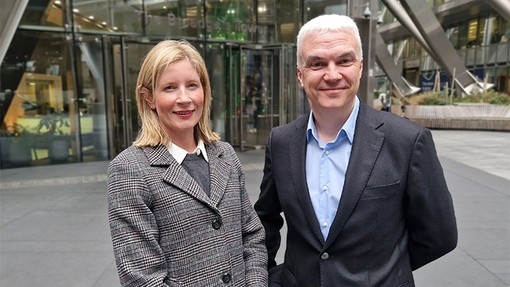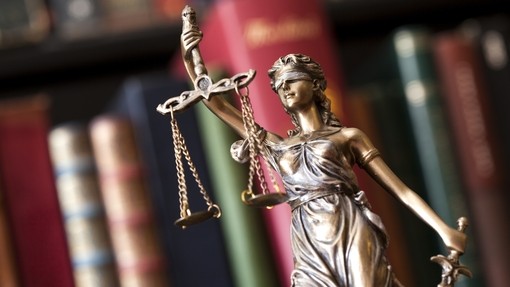Disclosure in Public Inquiries –
Wide Powers

Disclosure in Public Inquiries – Wide Powers
It appears at the moment that there are an unusually large number of public inquiries underway or being called for, these include the Covid-19 Inquiry, the Grenfell Tower Inquiry, the Post Office Horizon IT Inquiry and most recently the terms of reference for an inquiry following the murders and attempted murders committed by former neonatal nurse Lucy Letby has been announced. It is reported that there have been 69 public inquiries launched between 1990 and 2017, compared with only 19 in the previous 30 years.
Public inquiries are major investigations – convened by a government minister – that may be given special powers to compel testimony and the release of other forms of evidence including documents. The primary justification for a public inquiry is the existence of ‘public concern’ about a particular event or set of events.
Legislative Framework
The Inquiries Act 2005 created a statutory framework for inquiries into matters of public concern, and is supplemented by the Inquiry Rules 2006. However, this is not the only option open to Ministers: a non-statutory inquiry may be commissioned, a Royal Commission or a departmental inquiry.
Statutory public inquiries (those set up pursuant to the Inquiries Act 2005) confer significant legal powers upon the Chair to compel disclosure of documents and evidence (both oral and written) where other inquiries/commissions are not able to do so.
The main function of a Public Inquiry is to address these three questions:
- What happened?
- Why did it happen and who is to blame?
- What can be done to prevent a similar events happening again?
All inquiries start by looking backwards at the events complained of to ascertain what happened. This is done through the collection of evidence, analysis of contemporaneous documents and examining witness testimonies.
Without doubt, such inquiries serve a special part of the UK’s system of governance and provide the opportunity for lessons learned to be distilled, understood and applied in future.
Disclosure Obligations
For parties involved in a Public Inquiry either directly or peripherally involved, it is important to understand what their obligations are in terms of document production if criticism is to be avoided.
Section 21 of the Inquiries Act 2005 provides:
‘21 Powers of chairman to require production of evidence etc
(1) The chairman of an inquiry may by notice require a person to attend at a time and place stated in the notice–
(a) to give evidence;
(b) to produce any documents in his custody or under his control that relate to a matter in question at the inquiry;
(c) to produce any other thing in his custody or under his control for inspection, examination or testing by or on behalf of the inquiry panel.’
At the very outset of any inquiry, the location and securing of any relevant documentation is a major task and this is always made more complex when time has elapsed. The Chair of the Inquiry has wide powers (as set out above) and will decide precisely what documentation is to be disclosed and how – access to inspection of relevant documentation or the provision of copies (hard copies or electronic).
In recent judicial review proceedings, the Administrative Court dismissed a judicial review challenge against a notice requesting unredacted documents issued by the Chair of the UK COVID-19 Inquiry under section 21 of the Inquiries Act 2005 - R (Cabinet Office) v The Chair of the UK Covid-19 Inquiry [2023] EWHC 1702 (Admin). The Chair (Baroness Hallett) had used her powers to ask to see unredacted WhatsApp messages between Boris Johnson and his advisers during 2020 to 2022. She also sought Mr Johnson’s (unredacted) diaries and notebooks. The Cabinet Office had already provided over 3,000 documents to the inquiry, including WhatsApp messages, but redacted those it considered ‘unambiguously irrelevant’. The Chair dismissed the Cabinet Office’s application to revoke the notice to produce under section 21(4)(b). The Cabinet Office challenged the issuing of the notice and the Chair’s refusal to revoke it by judicial review. The Administrative Court held that the requested documents ‘relate[d] to a matter in question at the inquiry’ and should be produced. The section 21 notice was not invalid merely because some WhatsApp messages would be irrelevant, which was inevitable, nor because it omitted wording specifying documents ‘relating to a matter in question at the inquiry’ (or similar). Unlike civil proceedings, inquiries could ‘fish’ for documents and make ‘informed but speculative requests for documents relevant to lines of inquiry’. The Inquiries Act 2005 anticipated irrelevant documents being obtained under section 21(1)(b) by allowing challenges to requests under section 21(4)(b). Accordingly, it was held that the Chair had not acted irrationally and was entitled to consider that the requested documents related to a matter in question at the inquiry. It was noted that although an inquiry’s powers are ‘not without limits’, but the courts should be ‘very slow’ to interfere with its lines of inquiry.
The Inquiry will usually attempt to recover and keep safe all relevant documents and records as soon as possible and particularly in cases where it is believed that documents are at risk of being destroyed or mislaid. A log will be kept of what is recovered and where from.
Inevitably, some of the documentary material provided to and considered by an inquiry will be confidential and sensitive in nature. The inquiry team will consider, on a case-by-case basis, the public interest in disclosing such material and behaving transparently versus the data protection rights of the individuals referred to in the material. Those conducting an inquiry should consider the fairness of disclosing material containing personal data, considering the consequences that publication might have on an individual. If fairness requires such documentation to be disclosed, those leading the inquiry should consider whether to impose restrictions about the way in which such information can be seen e.g. limiting circulation lists and restricting its wider dissemination. Undertakings as to confidentiality can also be sought if a party is concerned about the disclosure of certain material.
Key Points
For parties called on to provide evidence to an inquiry:
- It will be necessary to quickly get to grips with what documents are relevant and need to be produced. Can the documents requested by easily located and extracted for production?;
- Consider whether there are personal data protection concerns that need addressing with the Inquiry;
- Consider whether undertakings as to confidentiality are required.
For further information on this topic, please contact Moya Clifford.





